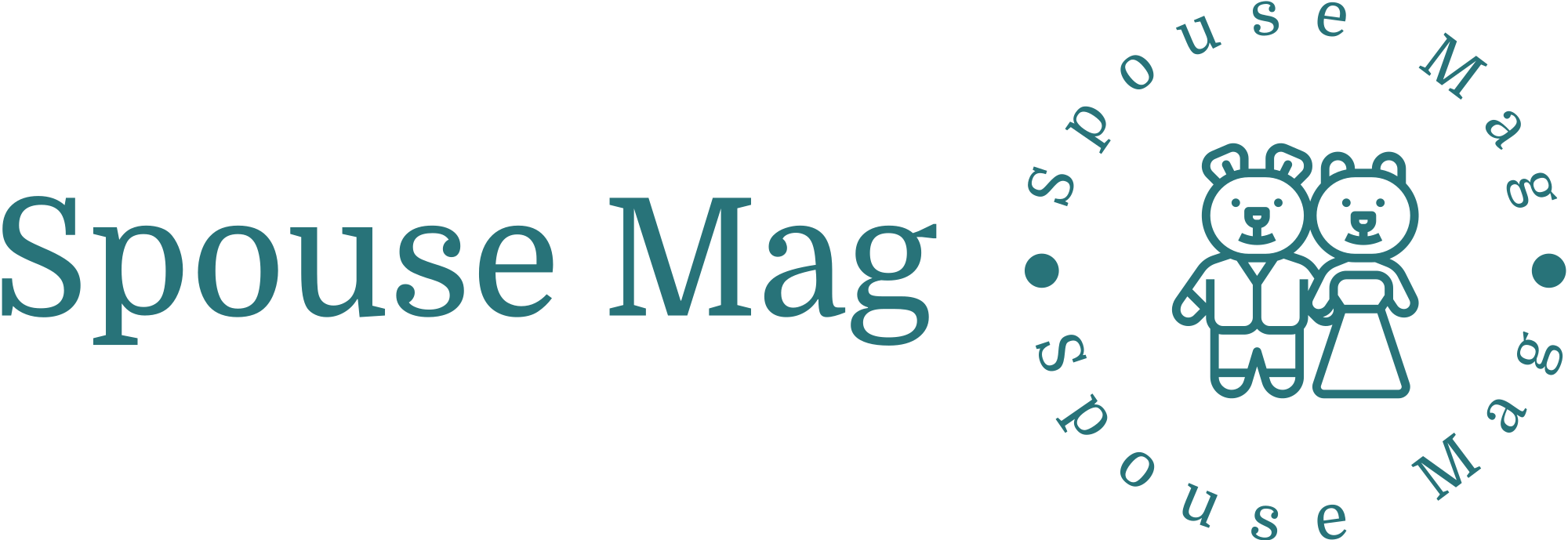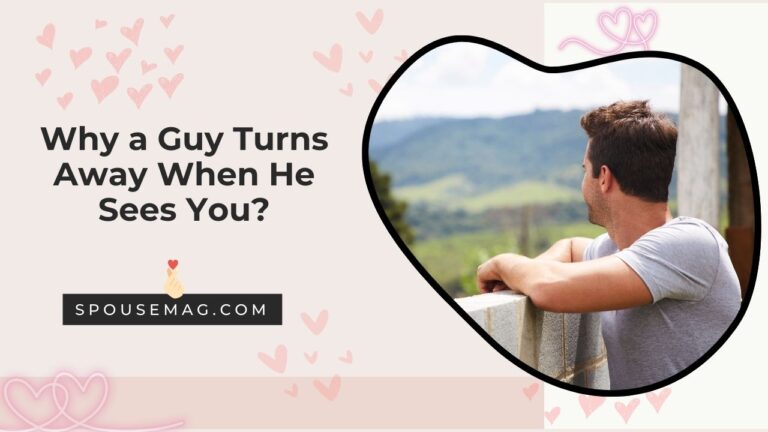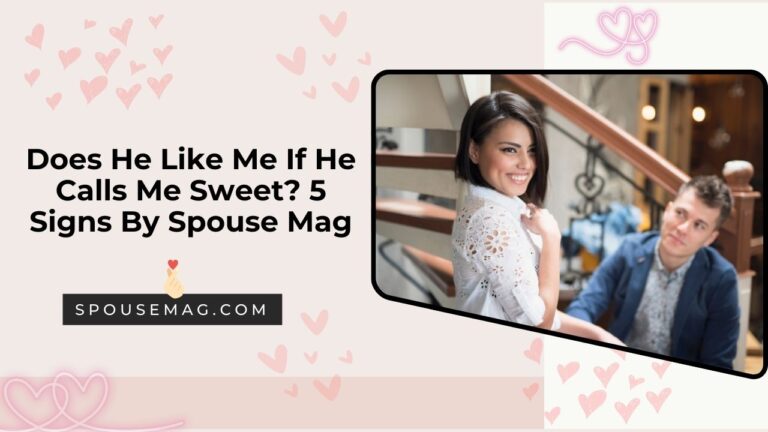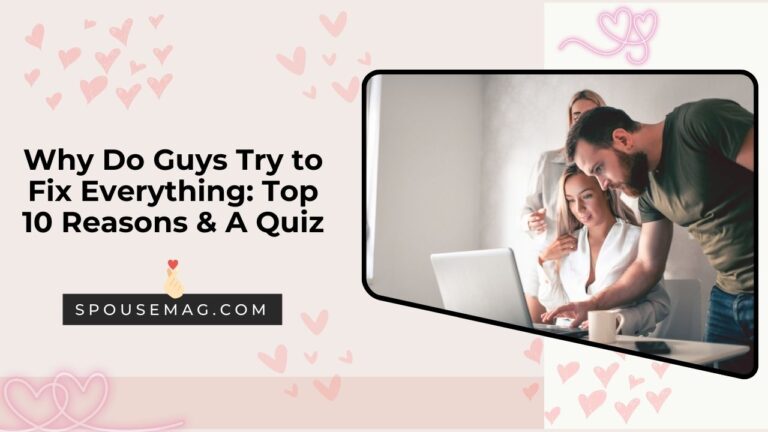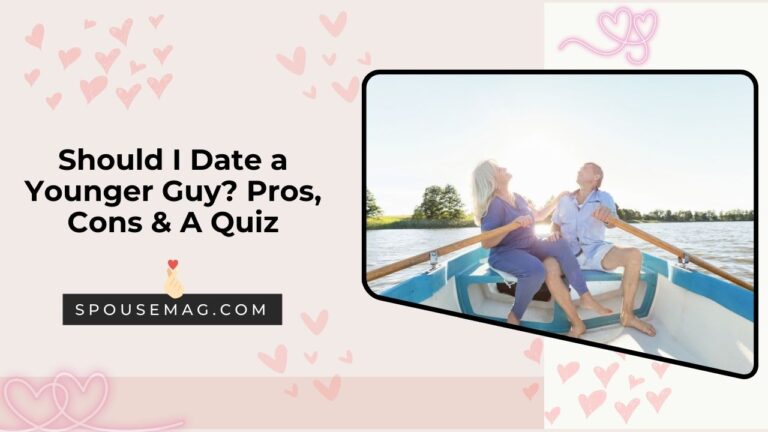
When a girl avoids eye contact, it means she’s feeling shy or nervous, especially if she’s into you. It could also mean that she’s overwhelmed or unsure of how to handle her emotions.
Sometimes, it’s simply about her personal or cultural habits. Instead of stressing about it, remember it’s usually about her internal world rather than anything you’re doing. Just be your genuine self, and she’ll likely feel more comfortable around you.
Quiz: Why Does a Girl Avoid Eye Contact with Me?
Shyness or Nervousness
When a girl avoids eye contact, it reflects shyness or nervousness, particularly if she feels a strong attraction. Her heart races, and making eye contact could intensify those feelings, leading her to look away.
She fears that prolonged eye contact will reveal too much about her emotions, so she avoids it as a way to protect herself from vulnerability. This behavior often appears in the early stages of attraction, where everything feels intense and uncertain.
| Nervous | Just Distracted |
|---|---|
| Avoids eye contact frequently | Eye contact breaks briefly |
| Stumbles over words, voice may shake | Pauses mid-conversation, clear speech |
| Fidgeting, restless movements | Seems relaxed, but attention drifts |
| Struggles to focus on conversation | Shifts attention to other things |
| Hesitant or delayed replies | Quick, but unrelated replies |
Lack of Interest
Avoiding eye contact serves as a subtle indicator of disinterest. If she’s not engaged in the conversation or isn’t particularly interested in the person she’s with, she may choose to avoid direct eye contact to signal this.
It’s a non-verbal way of keeping her distance and showing that she isn’t invested in the interaction. This avoidance can be more noticeable in social situations where she doesn’t want to encourage further conversation.
Here’s how to grab her attention:
- Use humor to break the ice and create a light, fun atmosphere.
- Ask about her interests and listen attentively to her responses.
- Offer sincere compliments that go beyond her appearance.
- Offer your help or support in situations where she might need it.
- When you do catch her gaze, hold it for a moment to show interest.
- Authenticity stands out, so be true to who you are.
Feeling Intimidated
Intimidation can cause a girl to avoid eye contact, especially if she feels overwhelmed by the person or situation. If someone comes across as too authoritative or intense, she chooses to look away to avoid feeling exposed or judged. This behavior helps her maintain some sense of control in a situation where she feels out of her depth or overshadowed.
To show her there’s nothing to be intimidated about, focus on being approachable and genuine. Share a bit about yourself, especially things that reveal your down-to-earth side, like hobbies or quirky interests.
When you talk to her, maintain open body language and give her your full attention, showing that you’re more interested in getting to know her than impressing her.
Sarah, 24, Graphic Designer: “When I first met Jake, he seemed really intense and confident. I avoided eye contact because I felt overwhelmed and unsure of how to interact with someone who seemed so dominant. It took me a while to relax and open up.”

Hiding Something
When a girl is trying to conceal something—whether it’s her true feelings, her secret love for you, or even a small lie—she avoids eye contact to keep the truth hidden.
Eye contact reveals a lot about what someone is thinking, so she looks away to prevent anyone from picking up on cues that she isn’t being entirely honest. This evasive behavior suggests there’s more going on beneath the surface than she’s willing to share.
Emma, 22, College Student: “I had a crush on Mark but kept it to myself. Whenever he talked to me, I avoided eye contact because I didn’t want him to see how much I liked him. I was trying to hide my true feelings.”
Social Anxiety
Social anxiety makes eye contact particularly challenging. Girls who experience social anxiety often feel uncomfortable in social interactions, and eye contact can amplify this discomfort.
By avoiding eye contact, she manages her anxiety and reduces the overwhelming feeling that comes with being the center of attention. This behavior reflects an internal struggle to navigate social situations without drawing too much focus to herself.
Lily, 20, Marketing Intern: “Social gatherings always make me nervous. I tend to avoid eye contact to manage my anxiety and feel less in the spotlight. It helps me handle the situation without feeling too overwhelmed.”
Respect or Cultural Norms
In certain cultures, avoiding eye contact is a sign of respect, especially in the presence of elders or authority figures. A girl who follows these norms may avoid making eye contact to demonstrate humility and deference.
This behavior isn’t about disinterest or discomfort but rather about adhering to cultural expectations that prioritize respect through non-verbal communication.
Aisha, 23, Research Assistant: “In my culture, avoiding eye contact with elders is a sign of respect. When I’m around authority figures, I make a conscious effort to avoid direct eye contact as a way to show deference and humility.”
Processing Emotions
When a girl is deep in thought or processing complex emotions, she avoids eye contact as a way to focus inwardly. Eye contact could be too intense or distracting when she’s trying to sort through her feelings, so she looks away to gather her thoughts.
This avoidance indicates that she’s dealing with something significant internally, which requires her full attention and emotional energy.
Jenna, 25, Therapist: “When I’m dealing with something emotionally heavy, I tend to look away during conversations. Eye contact can be too intense when I’m trying to sort through my feelings, so I avoid it to stay focused.”
Discomfort with the Topic
If the conversation touches on a subject she finds awkward, sensitive, or distressing, she looks away as a form of self-protection.
This behavior suggests that the topic brings up emotions or thoughts she’d rather not engage with, and avoiding eye contact helps her distance herself from the discussion.
Maya, 21, Student: “During a discussion about a sensitive topic, I couldn’t maintain eye contact. I looked away because the subject made me uncomfortable and I needed to distance myself from the discussion.”
What To Do if She Avoids Eye Contact With You?
- Don’t jump to conclusions. She might be shy or nervous around you. Keep your cool and continue the conversation naturally.
- Notice if she avoids eye contact just with you or with others too. If it’s just with you, it could mean she feels something specific toward you.
- A warm smile can ease tension.
- Sometimes, people avoid eye contact because they need more personal space. Respect her boundaries and let her come to you when she’s ready.
- Focus on the conversation rather than the eye contact. Talk about light, engaging topics that might help her feel more at ease.
- Look for other signs of interest or discomfort. She might be showing her feelings through other non-verbal cues, even if she’s avoiding eye contact.
- Think about the situation you’re in. Is she avoiding eye contact because of the setting, or is it more personal? The context can give you clues on how to proceed.
Conclusion:
When a girl avoids eye contact, it’s often a reflection of her internal world—whether she’s feeling shy, overwhelmed, or even adhering to cultural norms. It could also signal discomfort with the topic or a need to process her emotions.
Instead of overanalyzing her gaze, understand that her behavior is usually about her own feelings and not a reflection of you. Keep things relaxed and genuine, and she’ll likely become more comfortable over time.

As a married wife, founder, and editor of SpouseMag.com – these guides are based on my own personal experiences, observations, research and insights. I am transparent about being inspired by the life and work of the two greatest experts in the relationship space – Dr. John and Julia Gottman, and Harville and Helen. They two are some of the strongest couples, researchers, authors, and counselors when it comes to marriage and relationships. My advice and guides are based on my insights and research, and they are not an alternative to professional advice.
